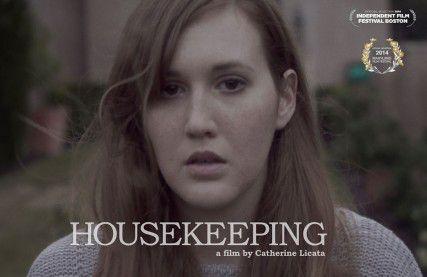While millions of fans flocked to the “Twilight: Breaking Dawn” premiere last Thursday at theaters in Boston and around the country, many others were opening their Internet browsers to watch the first trailer for Suzanne Collins’ book-turned-film “The Hunger Games.”
“I read ‘The Hunger Games’ over the summer and the trailer made me so excited to see the movie,” said Boston University College of Arts and Sciences sophomore Eric Wong.
John Bernstein, a College of Communication film professor, said there is a lot of public interest when a popular book becomes a movie – and this excitement translates into profit for film companies.
“It’s a selling ploy because there is a built-in audience,” said Bernstein. “After all, it’s all about business.”
This phenomenon is not unique to “The Hunger Games.” Just this year, the release of “Harry Potter and the Deathly Hallows: Part 2” broke the record for most money made for an opening day with $91.1 million. “The Twilight Saga: New Moon” follows “Deathly Hallows” at $72.7 million and “Twilight: Breaking Dawn,” which premiered last Thursday, opened with $72 million.
So what is it that makes films based off of books so successful at the box office?
Wong said he believes it’s the consumers’ connection with books such as “Harry Potter.” Wong said he likes movies based on books that he has already read and enjoyed.
“I usually watch movies that are based on books that I liked,” he said. “Like ‘Harry Potter,’ ‘Matilda,’ ‘Charlie and the Chocolate Factory’ or ‘Alice in Wonderland.’”
HOW IT HAPPENS
A book doesn’t simply become a movie in one fell swoop, said COM journalism professor and published writer Mitchell Zuckoff.
“First, a book will be optioned by a producer or by a studio,” said Zuckoff. “The producer or a studio would get the right to turn that book into a movie for a certain period of time.”
However, if a production company does not start making the movie within the time the contract permits, the rights to make a movie revert back to the author.
Bernstein said there are “on-the-payroll spies” who read books that have arrived to publishing houses or agencies to “see if there may be material that’s suitable for production.”
Once a movie begins production, there are still many obstacles that the production company and authors have to hurdle in order to make the movie profitable, Bernstein said.
MOVIE VS. BOOK
When a book translates to the movie screen, one of the producers’ primary concerns is that the movie reflects the book well, Zuckoff said. This can make it hard on writers and producers to agree during production.
Zuckoff, who writes nonfiction books such as “Lost in Shangri-La: A True Story of Survival, Adventure, and the Most Incredible Rescue Mission of World War II,” said writers often become disappointed with the movie versions of their books if the movie loses the original message.
“My biggest concern is that [movies] remain true to the spirit of the work,” he said. “I write nonfiction so I understand it’s going to be a different product, but you just can tell sometimes when a movie maker has taken too much license in a movie.”
Bernstein said that writers often hinder the movie-making process because writers try to include every aspect of the book into the movie.
“My personal feeling about writers is that you should keep them far away from the film,” said Bernstein. “Writers ultimately want to see everything that they have written. Not all, but many.”
If the book does not translate well into a movie, fans of the book often criticize the movie, as Wong said he is prone to do.
“They might not portray the way that I imagined it in my head,” he said. “They can’t put everything into the movies so they miss out on some of the things that made you really like the book.”
Are any fans understanding of the book-movie transformation? Phoebe Waldron, a senior in COM, said she felt appreciation for most film adaptations of books.
“I grew up in libraries. For most of my life I was always like, ‘books, books, books,’” she said. “But now that I’m into film I can appreciate adaptations more because I realize how difficult it is to take a novel and tell that same story in a visual way.”
Waldron said a movie is different from a book and deserves credit as its own original work.
“I try to approach novels and films differently because they’re completely different mediums,” said Waldron. “You have to take each for what it is.”






















































































































